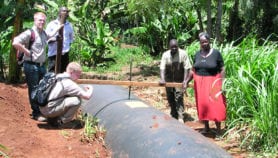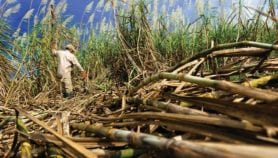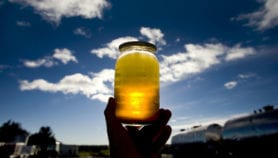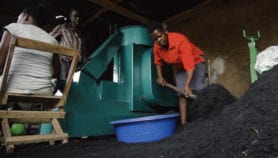By: Zoraida Portillo
Send to a friend
The details you provide on this page will not be used to send unsolicited email, and will not be sold to a 3rd party. See privacy policy.
[LIMA] Biofuel crops are more likely than other plants to become invasive in tropical and subtropical ecosystems worldwide, scientists have found.
They say that a weed risk assessment (WRA) — which examines a plant’s biology, geographic origin, known pest status and behaviour — can be used to predict whether a species of biofuel crop will become invasive, enabling countries to avoid environmental and economic losses.
In the first quantitative study of the invasiveness of terrestrial biofuel crops, researchers at the US-based University of Hawaii used a WRA adapted for screening potentially invasive species on both biofuel crops proposed for Hawaii and non-biofuel plant species, to quantify actual, relative or potential invasiveness.
They found that biofuel crops are two to four times more likely to be invasive or to establish wild populations than a random sample of other plants introduced to Hawaii.
The team concludes that extensive planting — a scenario expected with large-scale biofuel crop cultivation — will aggravate invasions.
They claim these results are valid for all areas with tropical and subtropical ecosystems. The WRA used in the study is now an internationally accepted means of determining risk of crop invasiveness.
Lead author Christopher Buddenhagen told SciDev.Net that some of the key potential or actual invasive species include gorse, jatropha and kudzu. Non-invasive examples include macadamia and sugarcane.
"Planting of potentially invasive species near important natural areas with high biodiversity should be discouraged," Buddenhagen said.
"If a crop species has a high risk of being invasive, the likelihood of it becoming invasive is worsened by planting it on a large scale," he added.
Governments should give priority to non-invasive or less invasive species before granting funds or approval for biofuel planting programmes, said Buddenhagen.
Julio Ugarte, the Peruvian coordinator of the World Agroforestry Centre, told SciDev.Net that in particularly biodiverse areas it is better to act cautiously and find alternative sources of biofuel than to import crops that could put those resources at risk.
The research is published in the 22 April edition of PLoS ONE.
References
PLoS ONE doi:10.1371/journal.pone.0005261 (2009)













